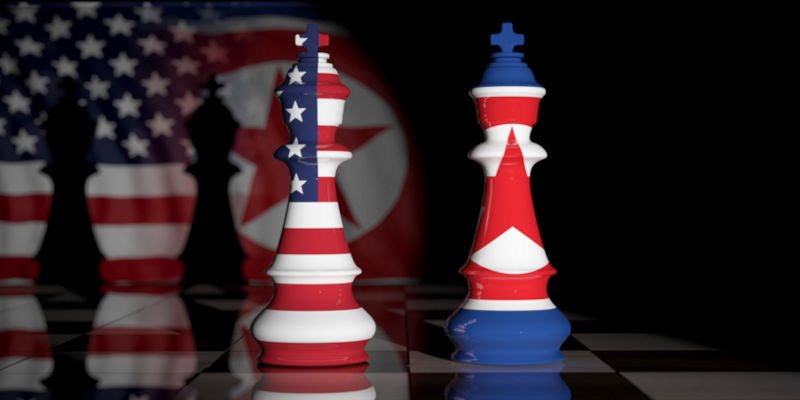Between years 2000 and 2018 the North Korea and South Korea governments issued three joint declarations all promising South Korean economic aid to North Korea and North Korean moves to denuclearisation.
Year 2002 saw the Japanese-inspired Pyongyang Declaration promising even more of the same.
But each time subsequent conservative governments made sure the promises remained unfulfilled.
President Trump first tried his hand at changing this bleak record in 2018, with a one on one, five hour meeting with North Korea’s new leader Kim Jong Un. He came away saying a special bond had been created between the two.
“I know when somebody wants a deal. … I just feel very strongly — my instinct … — they want to make a deal.”
On the US side was a significant promise to stop war games exercises along the border with North Korea plus an invitation to the White House.
On the North Korean side, however, there was little more than a promise to give up nuclear weapons, a promise which Trump said he thought was sincere.
Since then, with the change to the Biden administration and the conservative Yoon Suk Yeok government in South Korea, hostile relations have resumed with no hint of the Trump promises remaining.
And if we were to see a Trump administration in 2024?
It is easy to dismiss the Trump approach to foreign relations. But relying on gut instinct he manages to do much better than his allegedly rules-based advisers with their think tanks and dark warnings of arbitrary adversaries.
Relying on those instincts he has tried to avoid the wars of choice which have wasted lives and treasure on efforts to create ever more enemies.
My gut instinct is that there is a good chance he will go back to that approach if he wins in 2024, and it could well include an effort to improve relations with North Korea. If the Democrats win it will be more of the dangerous and futile confrontation of the last four years.
Gregory Clark was the first postwar Australian diplomat trained in Chinese, with postings to Hong Kong, Moscow and the UN before retiring in protest against the Vietnam War. After PhD studies at the ANU he became Japan correspondent for The Australian. A spell in Canberra’s Prime Ministers department led to professorships at Tokyo’s Sophia University and emeritus president of Tama University, Tokyo, before becoming co-founder of the very successful English language Akita Kokusai Daigaku. He has now retired to Latin America (Peru) and Kiwi fruit growing in Boso peninsular south of Tokyo.
His works include ‘In Fear of China’ (1969) and several books in Japan on education and foreign policy.
He used to speak Chinese and Russian with fluency. He now speaks Japanese and Spanish.

